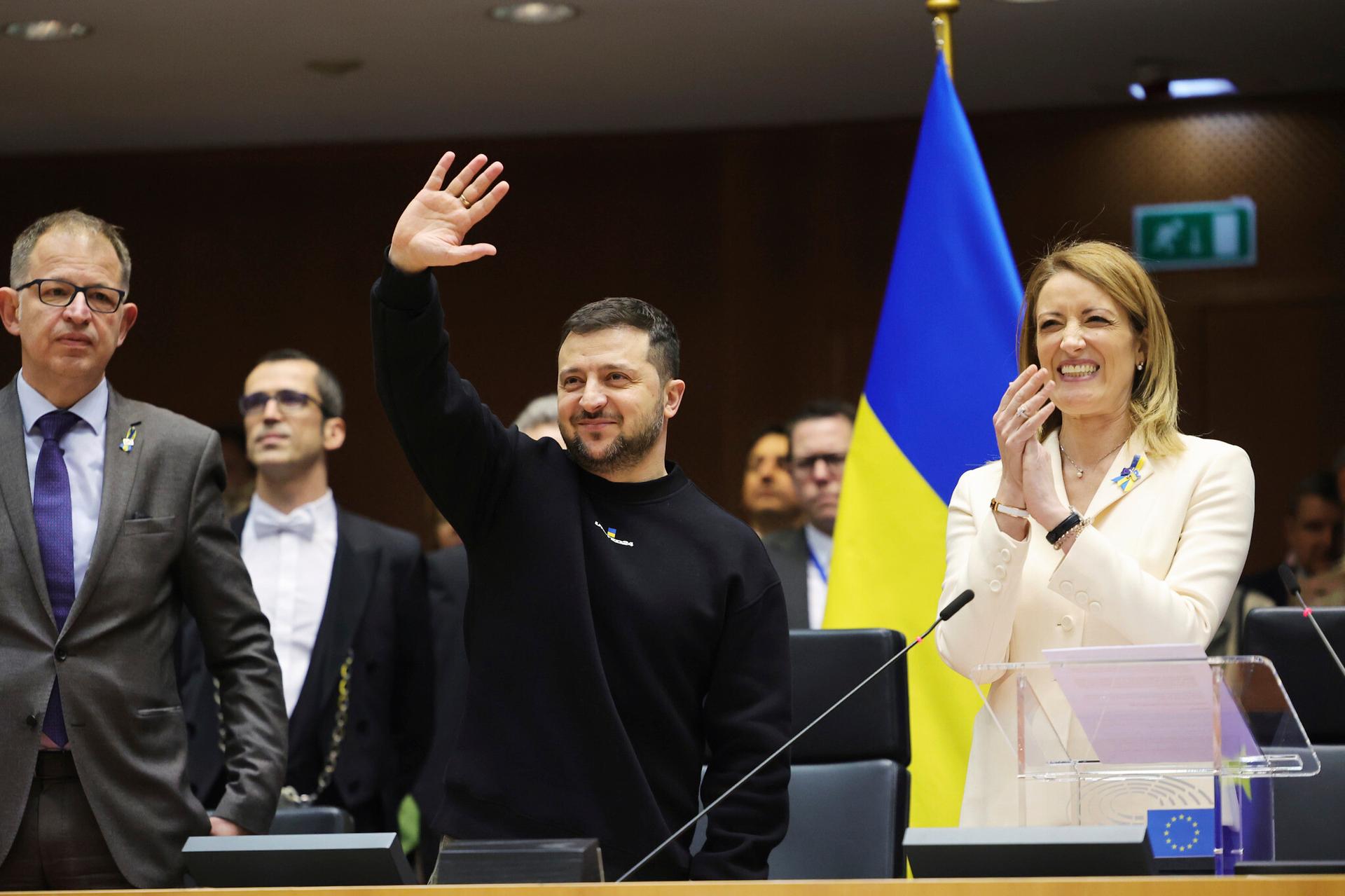ROME – Amid an ongoing push by Pope Francis and other church leaders for a stronger and more solidified European Union, Europe’s bishops have lauded the recent decision to open membership talks with Ukraine and Moldova.
From Dec. 13-15, leaders from the European Union’s 27 member countries met in Brussels, where they decided to formally open accession negotiations with Ukraine and Moldova and to grant official candidate status to Georgia.
European Council President Charles Michel said during the summit that the EU will also open negotiations with Bosnia and Herzegovina “once the necessary degree of compliance with the membership criteria is reached and has invited the commission to report by March with a view to taking such a decision.”
In a statement following the Brussels summit, Italian Bishop Mariano Crociata of Noto, President of the Commission of Bishops’ Conferences of the European Union (COMECE), congratulated Ukraine and Moldova for the “historic decisions” to open EU accession negotiations.
He also welcomed the decision to grant Georgia the status of a candidate country and voiced hope that negotiations would soon begin with Bosnia and Herzegovina, “once the necessary criteria have been achieved.”
Crociata lauded the decisions as “a strong message of hope for the citizens of the countries aspiring for a future EU membership, who have long awaited this moment with faith, enduring hardships and sacrifices.”
“In view of completing the European Union, a successful EU integration of the Western Balkans as well as the Eastern European countries is of strategic importance for stability, prosperity and peace on the European continent,” he said.
Ukraine, which for nearly two years has been embroiled in war with Russia following an invasion by Russian forces in February 2022, has long aspired to become a member of the European Union, and to join the North Atlantic Treaty Organization (NATO).
Part of Russia’s reason for invading Ukraine were alleged security concerns regarding the expansion of NATO progressively closer to its borders, and Russian President Vladimir Putin voicing his conviction that NATO was seeking the destruction of Russia.
Russian Orthodox Patriarch Kirill, who has repeatedly publicly defended the war, last March justified Russia’s invasion of Ukraine on grounds of security concerns, saying, “Russophobia is spreading across the Western world at an unprecedented pace,” and the country has a right to protect itself.
Openness to the west has long been a hallmark of Ukraine’s government, as opposed to their Russian neighbors, and aspirations to join the European Union have long been a goal of the country’s leadership.
Ukrainian President Volodymyr Zelenskyy has throughout his term pursued EU membership, and he doubled down on those aspirations in the wake of Russia’s 2022 invasion. European Commission President Ursula von der Leyen has repeatedly called for Ukraine to be admitted.
Following the decision of the Brussels summit to begin accession talks with Ukraine, Michel called it “a clear signal of hope for their people and for our continent.”
Zelenskyy, who prior to the session asked the EU leaders not to “betray” faith in Europe, said the decision “is a victory for Ukraine. A victory for all of Europe. A victory that motivates, inspires, and strengthens.”
Moldovan President Maia Sandu similarly said her country “turns a new page today.”
However, Hungarian Prime Minister Viktor Orbán was opposed to the opening of accession negotiations with Kyiv. Other senior EU leaders, including French President Emmanuel Macron and German Chancellor Olaf Scholz, met with Orbán ahead of the summit in a bid to convince him to come on board.
Orbán walked out of the room as leaders formally made the decision to open accession talks, allowing the assembly to obtain unanimity. However, after the vote, Hungary made the decision to block a €50 billion ($54.8 million) aid package to Ukraine.
Decisions on aid to Ukraine and other budgetary issues have been postponed until an extraordinary EU leaders’ summit scheduled for January.
The decision to begin accession talks with Ukraine and Moldova comes amid a consistent push by Pope Francis and Europe’s bishops to strengthen the European Union amid the rise of nationalist populism and the election of many EU leaders the church has said put national interests over the common good.
Pope Francis has consistently called for Europe to develop a more collective and unified response to the global migration crisis and to act together to fight the effects of climate change. He again pushed this agenda during his visits to Hungary and Marseille this year, outlining at length his vision for a Europe more attuned to its Christian roots.
In his statement, Crociata insisted that a “credible” EU enlargement process “does not only require candidate countries to continue performing the necessary reforms, but it also implies that the Union itself needs to become ready to welcome new members soon.”
“A larger and more diverse EU will not only have to re-think certain political, administrative and budgetary questions,” he said, but it must also “rediscover our common value basis and the special bonds that unite us as a European family.”
Follow Elise Ann Allen on Twitter: @eliseannallen













